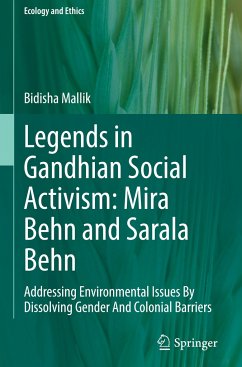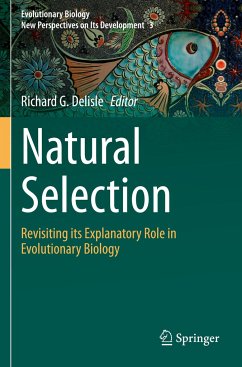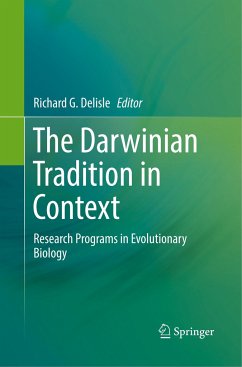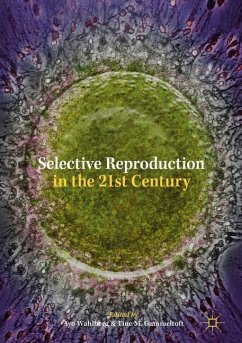
Legends in Gandhian Social Activism: Mira Behn and Sarala Behn
Addressing Environmental Issues By Dissolving Gender And Colonial Barriers
Versandkostenfrei!
Versandfertig in 6-10 Tagen
113,99 €
inkl. MwSt.
Weitere Ausgaben:

PAYBACK Punkte
57 °P sammeln!
This book is about Madeleine Slade (1892-1982) and Catherine Mary Heilemann (1901-1982), two English associates of Mohandas K. (Mahatma) Gandhi (1869-1948), known in India as Mira Behn and Sarala Behn. The odysseys of these women present a counternarrative to the forces of imperialism, colonialism, capitalism, and globalized development. The book examines their extraordinary journey to India to work with Gandhi and their roles in India's independence movement, their spiritual strivings, their independent work in the Himalayas, and most importantly, their contribution to the evolution of Gandhi...
This book is about Madeleine Slade (1892-1982) and Catherine Mary Heilemann (1901-1982), two English associates of Mohandas K. (Mahatma) Gandhi (1869-1948), known in India as Mira Behn and Sarala Behn. The odysseys of these women present a counternarrative to the forces of imperialism, colonialism, capitalism, and globalized development. The book examines their extraordinary journey to India to work with Gandhi and their roles in India's independence movement, their spiritual strivings, their independent work in the Himalayas, and most importantly, their contribution to the evolution of Gandhian philosophy of socio-economic reconstruction and environmental conservation in the present Indian state of Uttarakhand. The author shows that these women developed ideas and practices that drew from an extensive intellectual terrain that cannot be limited to Gandhi's work. She delineates directions in which Gandhian thought and experiments in rural development work and visions of a newsociety evolved through the lives, activism, and written contributions of these two women. Their thought and practice generated a new cultural consciousness on sustainability that had a key influence in environmental debates in India and beyond and were responsible for two of the most important environmental movements of India and the world: the Chipko Movement or the movement against commercial green felling of trees by hugging them, and the protest against the Tehri high dam on the Bhagirathi River. To this day, their teachings and philosophies constitute a useful and significant contribution to the search for and implementation of global ideas of ecological conservation and human development.












